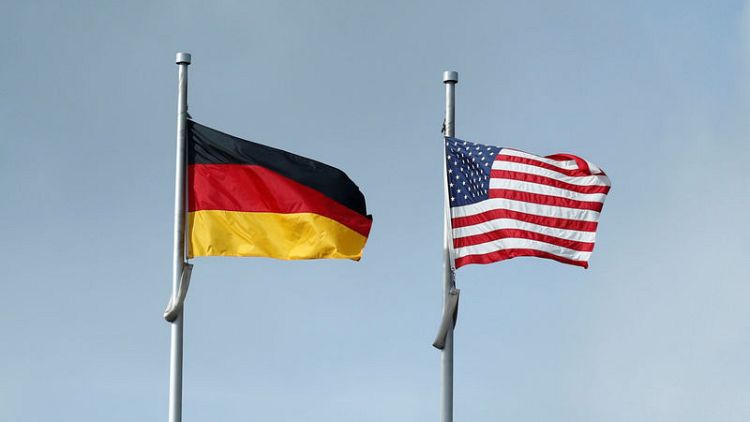BERLIN (Reuters) - Nearly 85 percent of Germans have a negative or very negative view of U.S.-German relations, and most want to put more distance between the traditionally close transaltantic allies, a new poll showed on Friday.
Just over 40 percent of those polled view China as a better partner for Germany than the United States, the survey of around 5,000 people, conducted by Atlantik-Bruecke and the Civey institute in poll in November and December, showed.
Ties between the United States and Germany, Europe's largest economy, have been strained since the 2016 election of U.S. President Donald Trump, who has criticised Germany repeatedly for its trade practices, defence spending and its participation in the Russian-led Nord Stream 2 gas pipeline.
Germany has sought to maintain friendly ties with the United States, but senior leaders speak publicly about an erosion of trust after Washington's withdrawal from the Paris climate accord, a 2015 nuclear accord with Iran, and most recently, the Intermediate-range Nuclear Forces Treaty (INF).
Michael Werz, senior fellow at the U.S.-based Centre for American Progress and a member of the executive board of the Atlantik-Bruecke, urged Germans not to let concerns about Trump spiral into anti-American resentment.
Burkhard Schwenker, deputy chairman of the Atlantik-Bruecke, said the poll showed the need to redouble efforts to expand dialogue between the two allies at all levels.
A total of 57.6 percent of those polled want to see more distance between Berlin and Washington, and 42.3 percent consider China a better partner.
About a third of those polled said they viewed right-wing populism and protectionism as the most dangerous global crises, compared to only 1.9 percent worried about Russia, and 2.2 percent who feared the growing influence of China.
(Reporting by Andrea Shalal)
